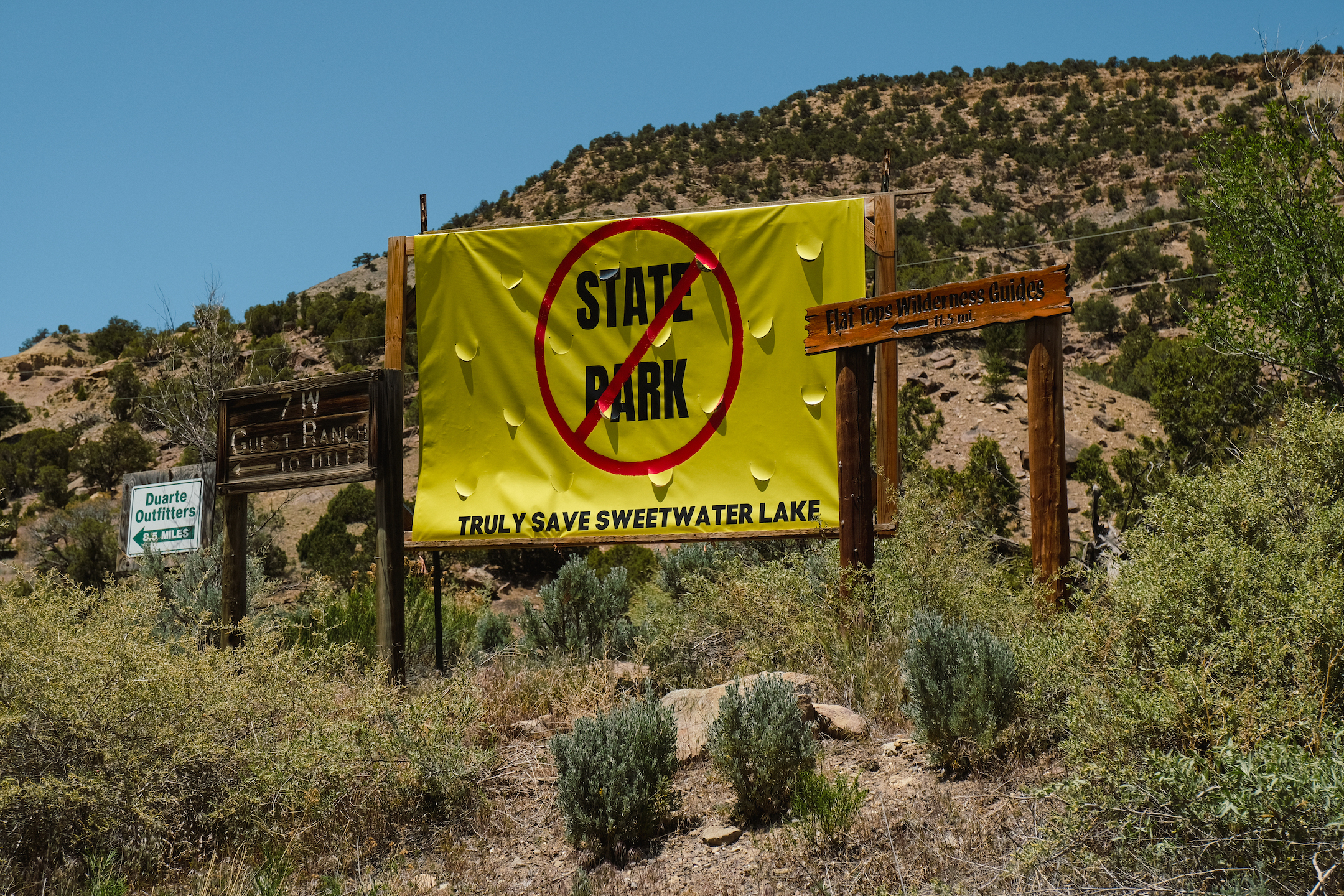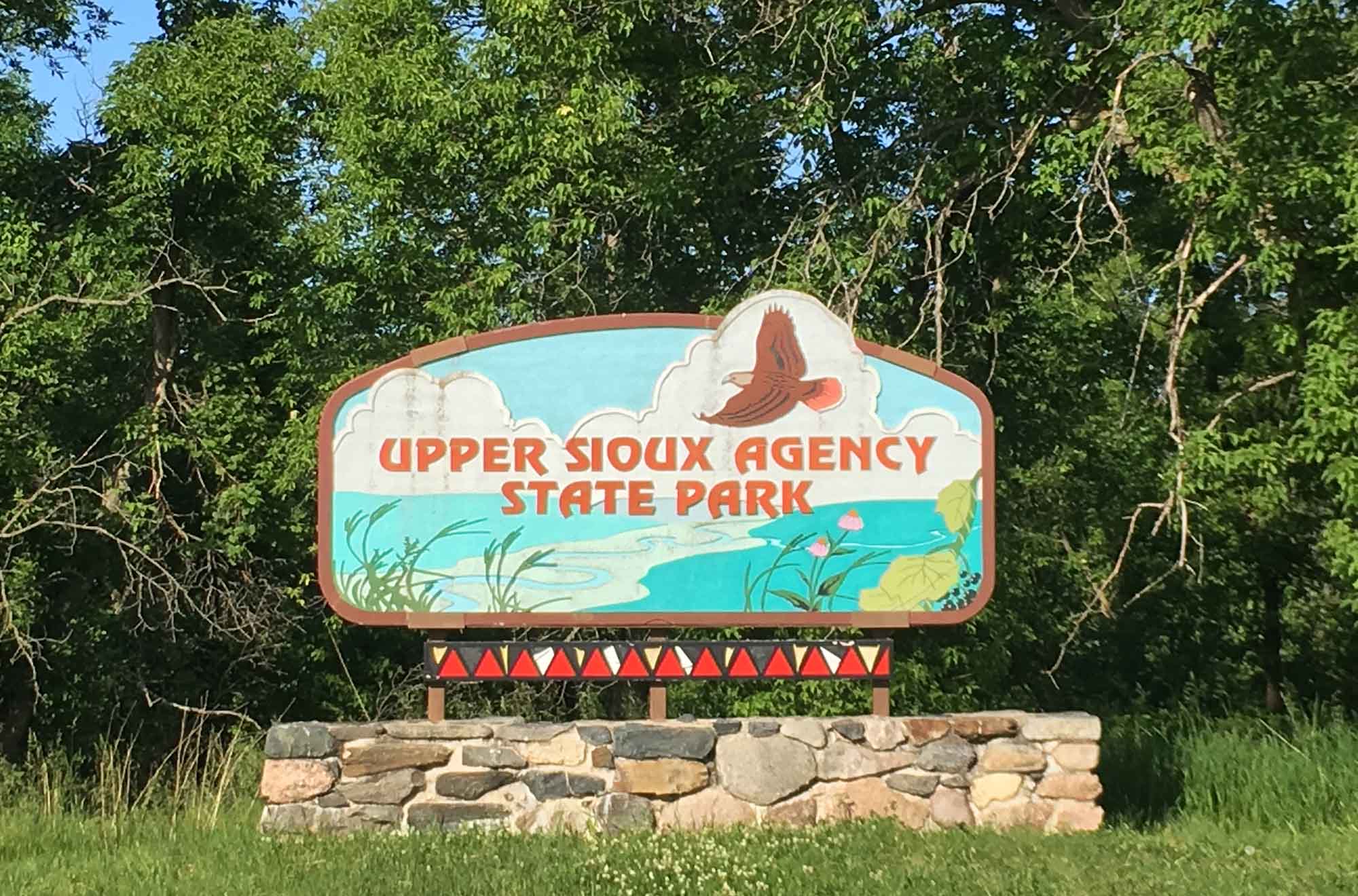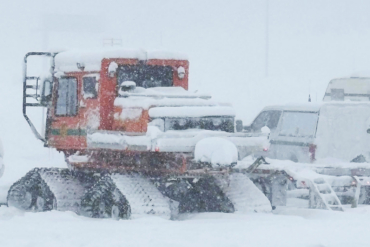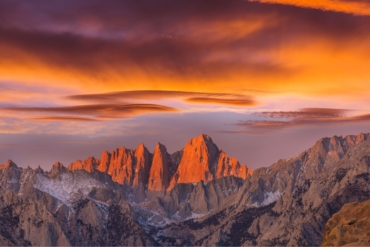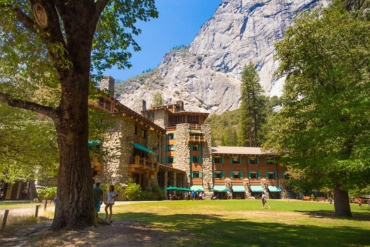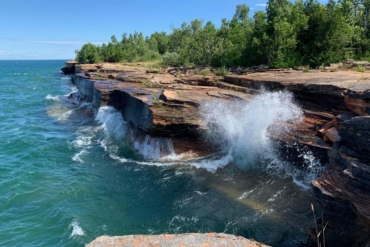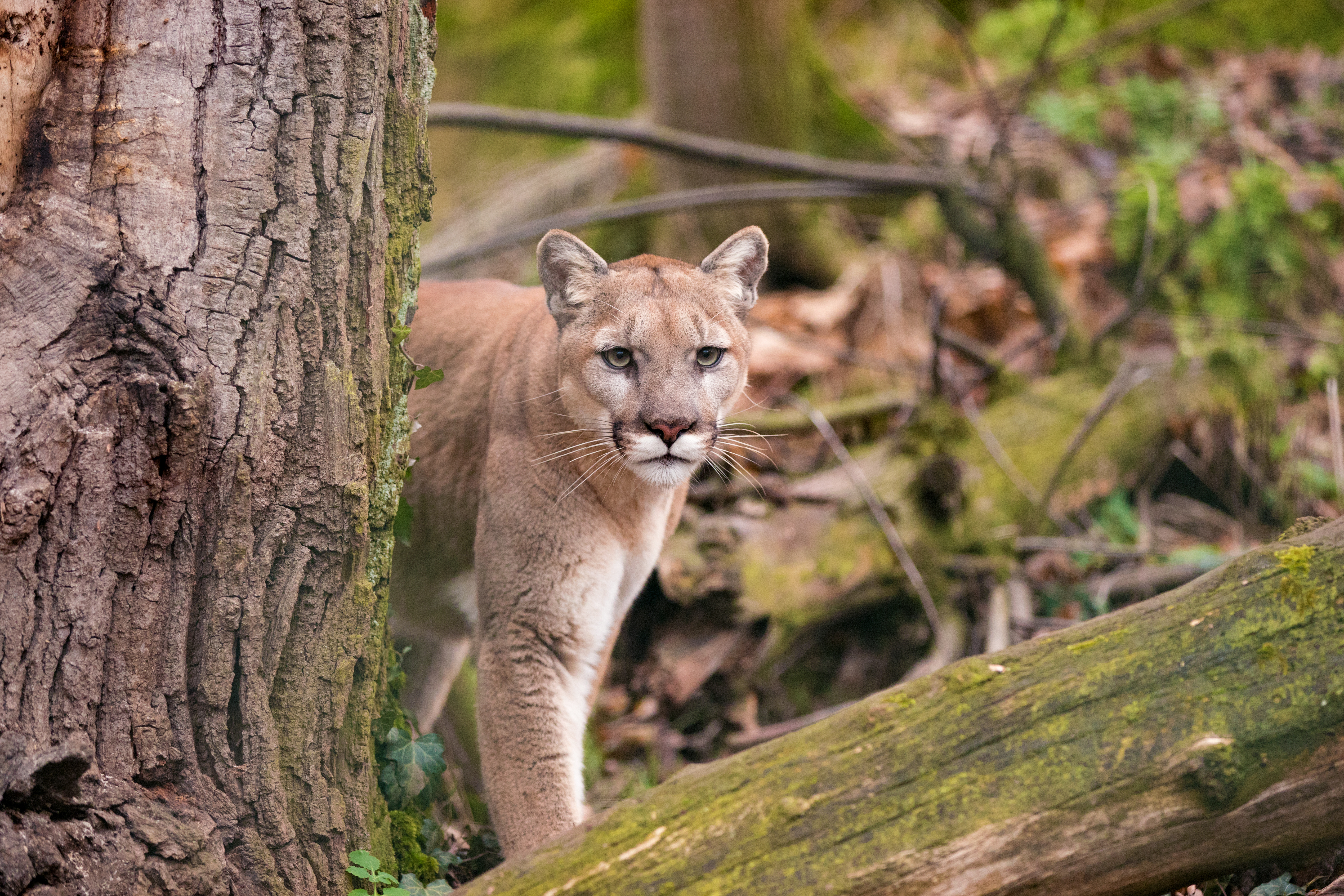The best view of Sweetwater Lake is from the tall rock outcrop on its north side. From there, you can see the twinkling water below, the raptors’ nesting cliffs, the horseback stables of AJ Brink Outfitters, and the adjacent historical buildings that once housed true Western outlaws. You can even make out the trail across the lake that leads back to a cave that Native Americans used centuries ago.
The scenery is spectacular, which is undoubtedly why, on October 20, 2021, Colorado Governor Jared Polis chose that spot to make an announcement that sparked both surprise and outcry.
“Good afternoon,” the governor said before a podium, his senior staff, members of the Forest Service, DNR, and others behind him. “And welcome to Sweetwater Lake, one of the most beautiful places in Colorado, and one that I am thrilled to announce will be the home of Colorado’s newest state park.”
In the video, everyone cheers and claps. But the announcement caught many who were watching off guard.
“That got us in hot water, to begin with,” said Colorado Parks and Wildlife (CPW) officer Mark Lehman as we walked beneath the rocky bluff where Polis once stood. Lehman said that Polis made that announcement without engaging much with local county commissioners or at all with the Sweetwater community.
The CPW and United States Forest Service (USFS) were unprepared for the backlash that ensued. The Sweetwater community and the nearby towns of Gypsum and Glenwood Springs called for inclusion in the planning process. Locals who were opposed to state management and development rallied against the project. Town hall meetings filled up with attendees ranging from curious to outright mad.
“[We’ve been] trying to play catch-up since then,” Lehman said.
The conversation around Sweetwater Lake and its fate under state management is complicated. It’s a heated topic in this small community. And, as a local, I’ve found myself on both sides of the debate at times. Jared Polis was right when he called this one of the most beautiful places in Colorado.
But the question many people are wrestling with is: Will it be the same if it’s officially designated and developed as a state park?
No State Park: ‘Save Sweetwater Lake’
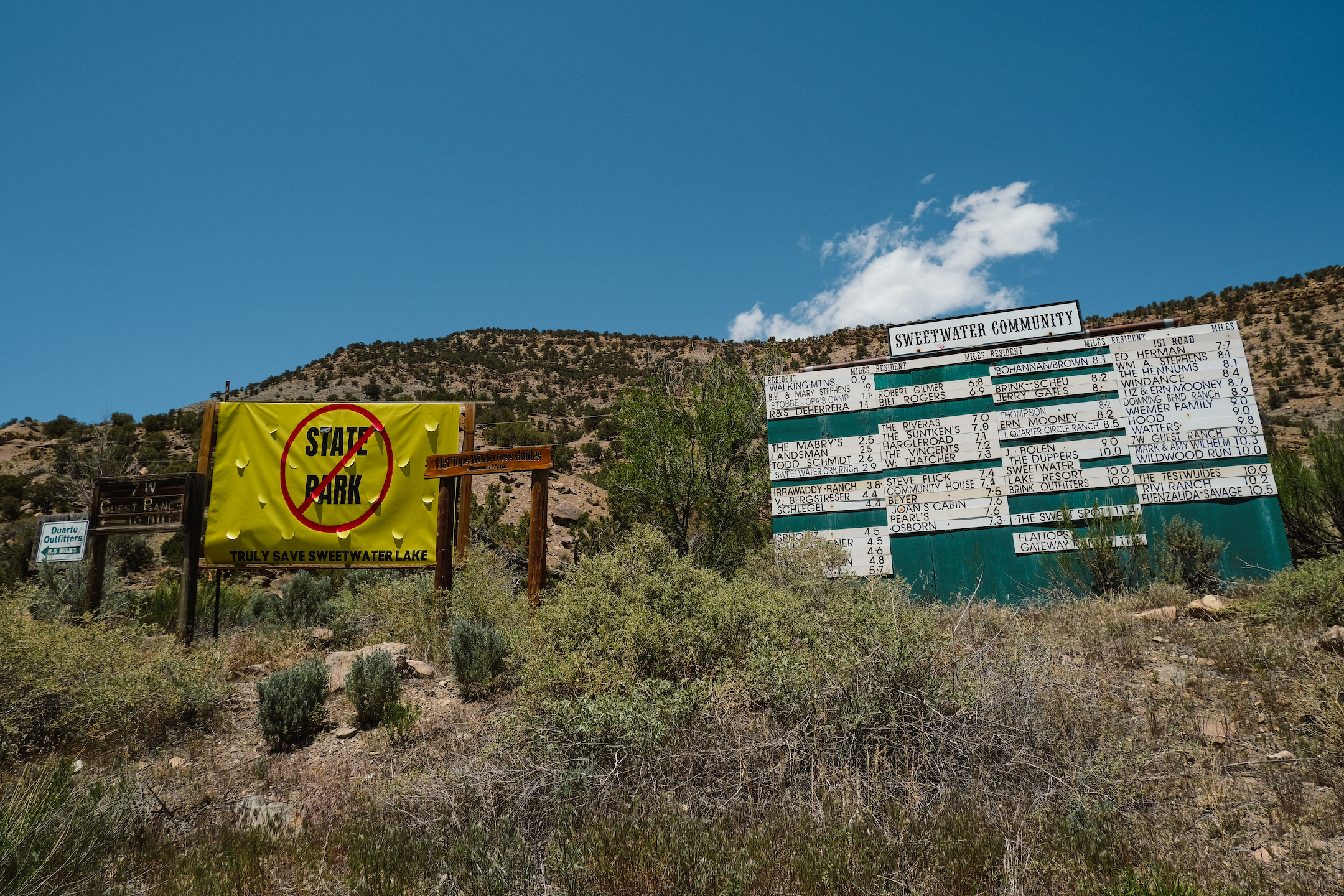
At the dirt road turnoff to Sweetwater Lake, there’s a large board listing the names of the community’s residents. That board has been there for as long as I can remember. But there’s now a new feature greeting visitors: a big yellow sign with a bright red prohibition circle over the words “State Park.”
Nearly every other driveway on the way up to the lake has identical but smaller yellow yard signs. The local sentiment is clear: No State Park.
“As a community we are opposed to the dramatic size increase, over 3 times the developed acreage, and the increase in visitor numbers which is over 4 times the historic numbers,” wrote the Sweetwater Community Club in a public comment submitted to the USFS webpage for the Sweetwater project.
“We are also extremely concerned with the lack of planning for the impact this will have on the ecosystem, the community, local culture, the roads as well other, nearby public and private lands.”
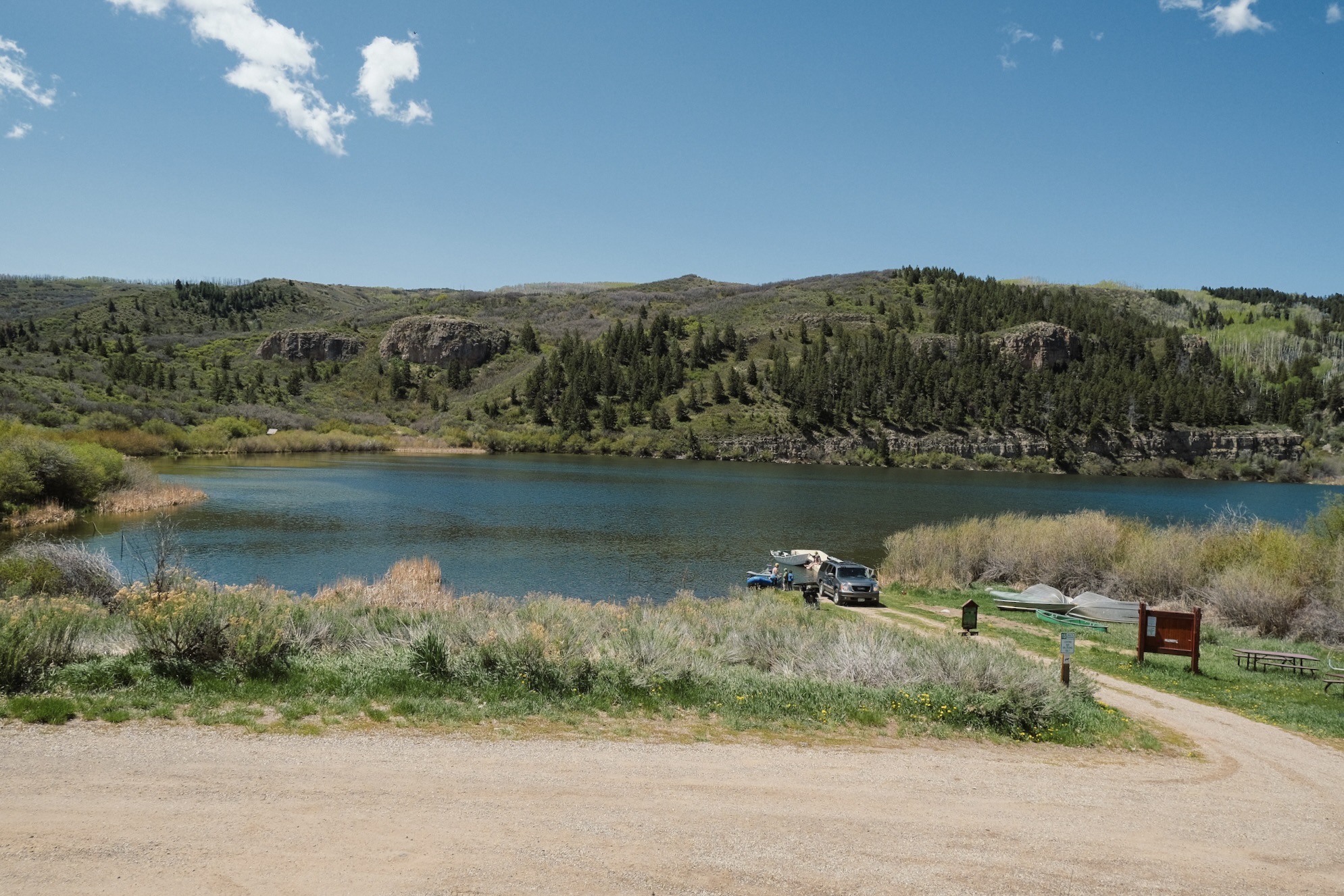
People are afraid that park-sized crowds will make the narrow dirt road leading to Sweetwater congested, more dangerous, and harder to maintain. There are also safety issues, as emergency services are 45 minutes to an hour away.
Then there are concerns for the wildlife and livestock in the region. Some fear that development and construction could affect migration patterns and calving areas. And other opponents point out that riparian and raptor nesting areas would also be put at risk.
Numerous structures on Sweetwater Ranch are over 100 years old and could be torn down under state management, as well. Other holdouts cite issues with the site size and design, the volume of visitation, local access, water impacts, visitor overflow, and restoring the beloved historic Sweetwater Restaurant.
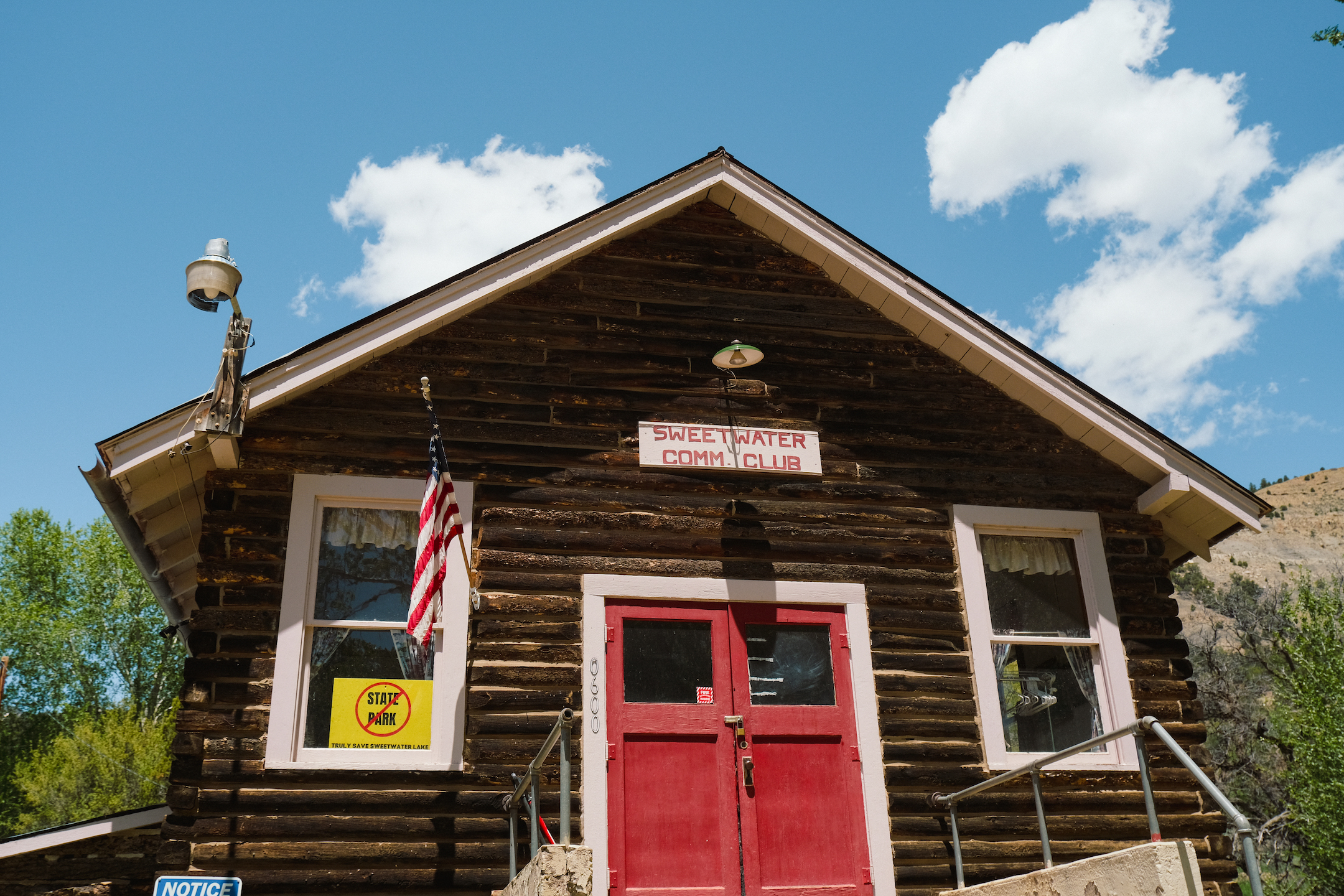
“It’s sad and depressing to know the federal officials who will be making the future decision on Sweetwater [Lake] have no real or familiar knowledge of the Sweetwater Lake prior to the Forest Service acquiring it,” wrote Bill Heicher in a public comment.
“Creating a new state park or allowing management by the state of Colorado can not be done without ruining all that is good about Sweetwater,” wrote Christie McEwan in another comment.
“Why does [this] County need another state park?” John Powell wrote.
I grew up visiting this lake with my parents. Day use was limited to boating, hiking, fishing, and equestrians. Our family used to drive from Gypsum for weekend day trips to recreate and eat at the restaurant (which served the best damn pie on the Western Slope). I spent many nights at the small nine-site campground. Sweetwater was our community’s private hidden gem.
People don’t want the state to change that. I understand the concerns.
‘Saved’ by the State
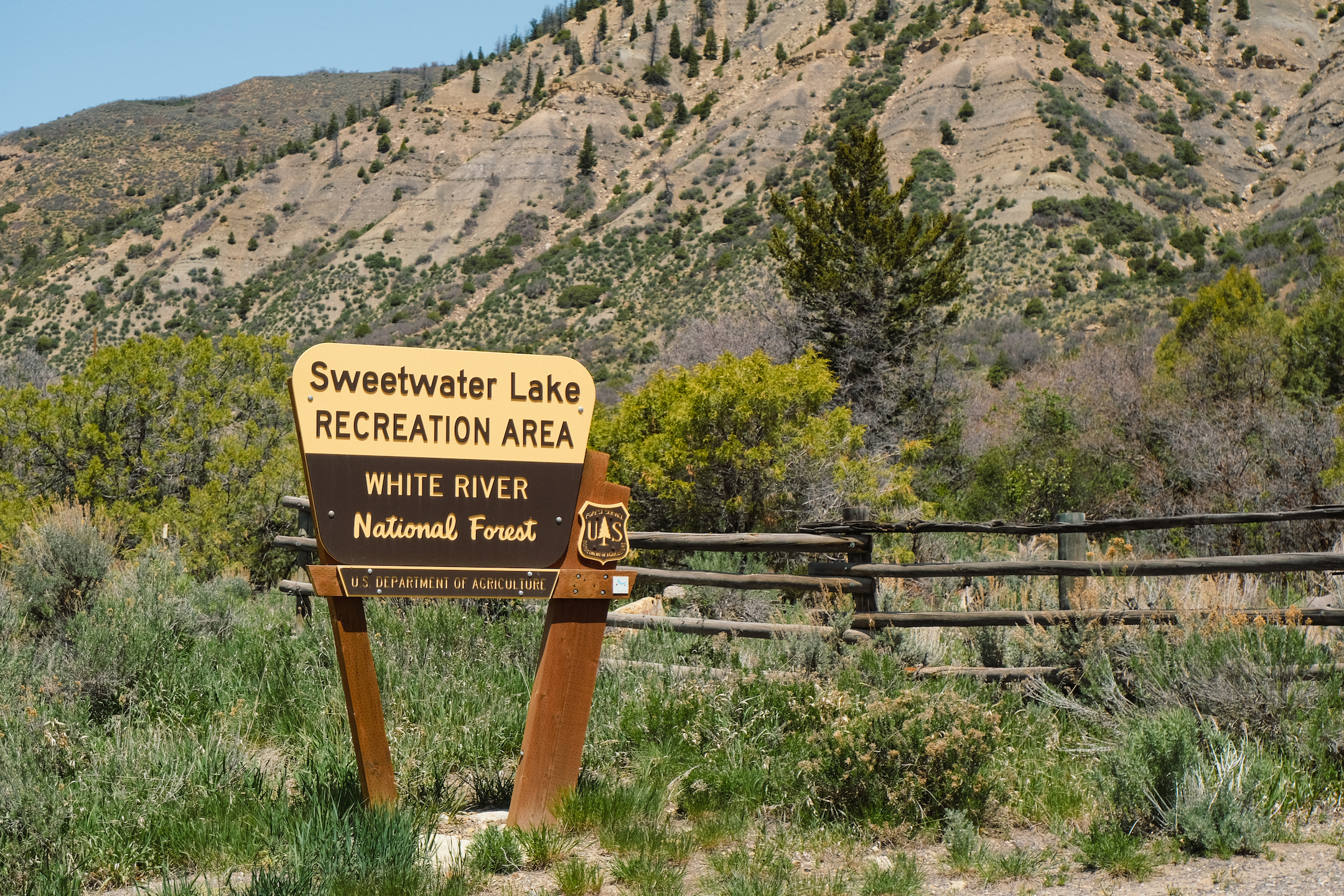
Officer Lehman is the CPW manager of the Sweetwater property. He met me outside the old restaurant, and we sat in the shade, a large map of the proposed recreational infrastructure on the table before us. He explained that USFS does not have the resources to manage Sweetwater on its own, so CPW is offering its own resources. The project will be jointly operated by the two agencies.
Lehman seemed sympathetic to the community’s fears. He said he understands that some of them are justified but that people should remember what the alternatives could have been if the state hadn’t acquired Sweetwater.
“There was talk of this being considered for a water bottling plant,” he said. “Or it could have been a luxury home subdivision … or a golf course.”
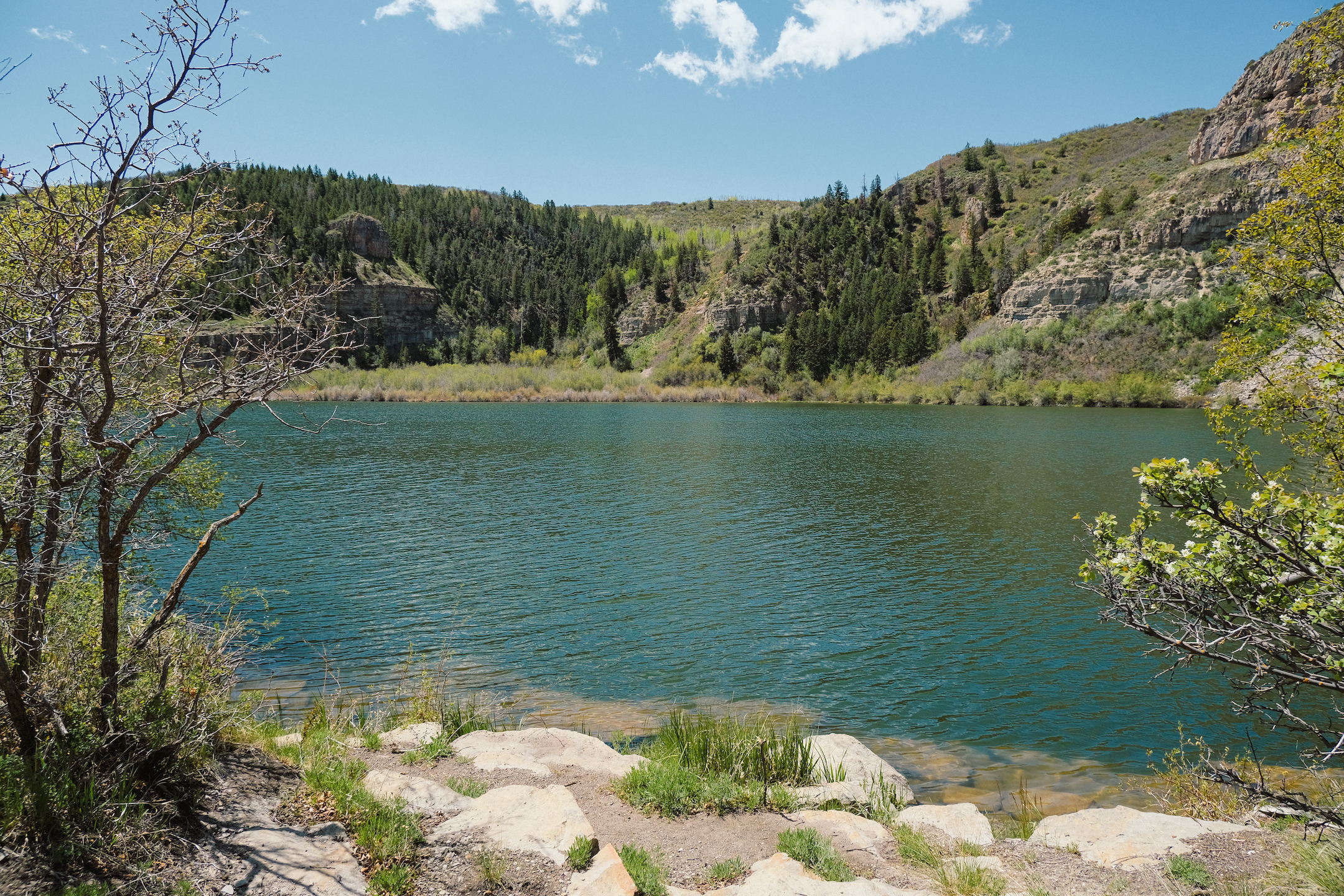
After the previous owner put the 832-acre Sweetwater Ranch site up for sale, the local community tried to raise money to buy it themselves with a campaign called “Save The Lake.” It raised over a million dollars but fell short of the $3.5 million goal.
That’s when the state acquired Sweetwater through a federal Land and Water Conservation Fund (LWCF) purchase in August 2021. Adrienne Brink, the longtime operator of AJ Brink Outfitters, said there was a sense of relief at the time that the state had “Saved the Lake.” But when Governor Polis declared Sweetwater the newest state park in Colorado, he started the conversation around state management on an awkward footing.
Brink said she and other community members felt ambushed by the announcement.
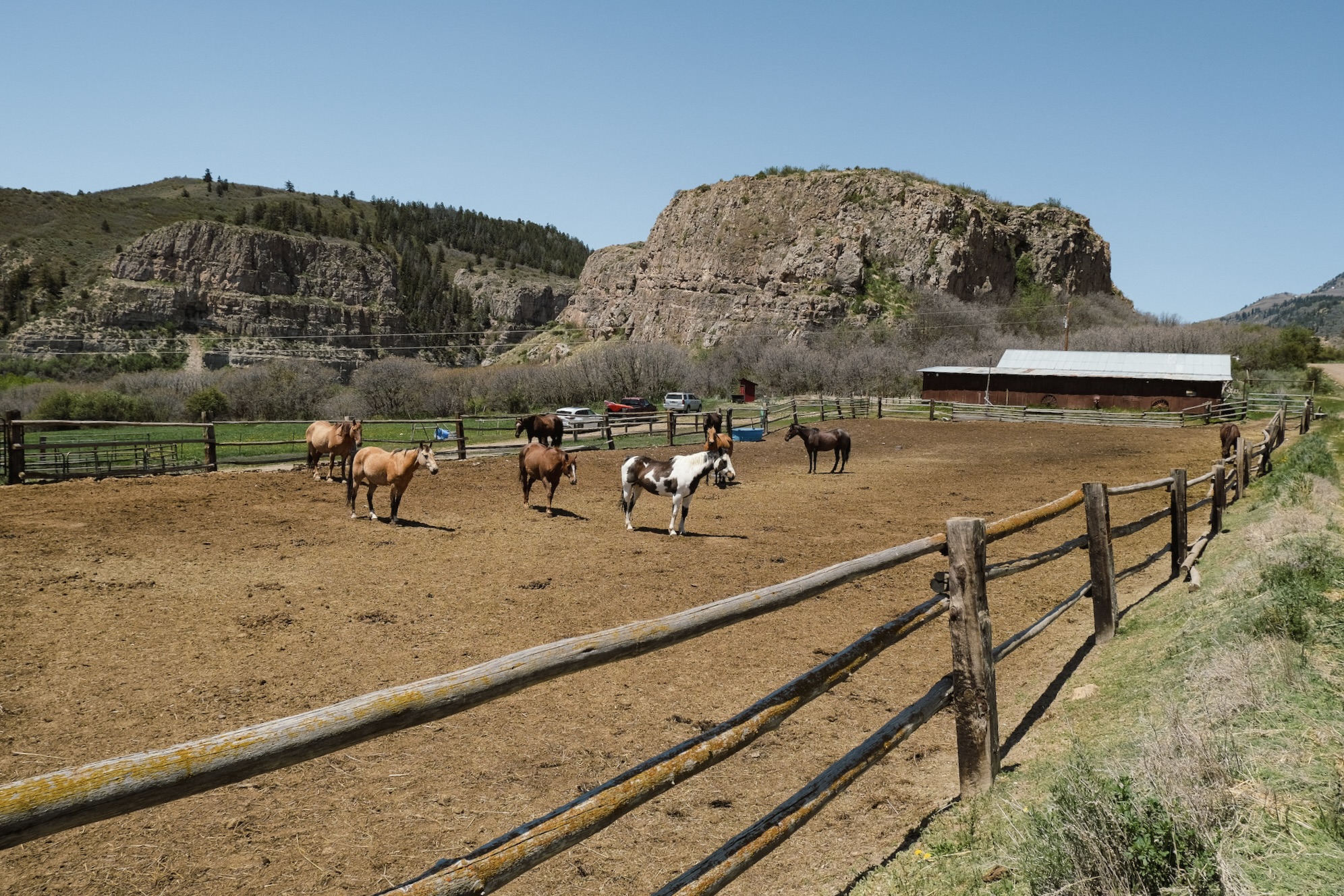
“It was a complete backdoor deal,” Brink said. “We all know this, but none of us have had much luck in doing anything about it.”
Lehman said CPW and USFS have been trying to be overly transparent since then. The agencies have been hosting open forums, attending town hall meetings, and working with the city of Glenwood Springs, the town of Gypsum, and the Sweetwater community to develop a plan together. Officials have assured folks that the more opinions they hear, the better suited the plan will be to satisfy every stakeholder.
The first public comment period is open until Monday, August 5. All of the comments submitted to the website will be considered. Then, the state has to complete an environmental analysis that will be published in an Environmental Impact Statement (EIS).
Following that, there will be another public comment period before the plan is finalized in March 2025. Implementation is tentatively slated for April 2025.
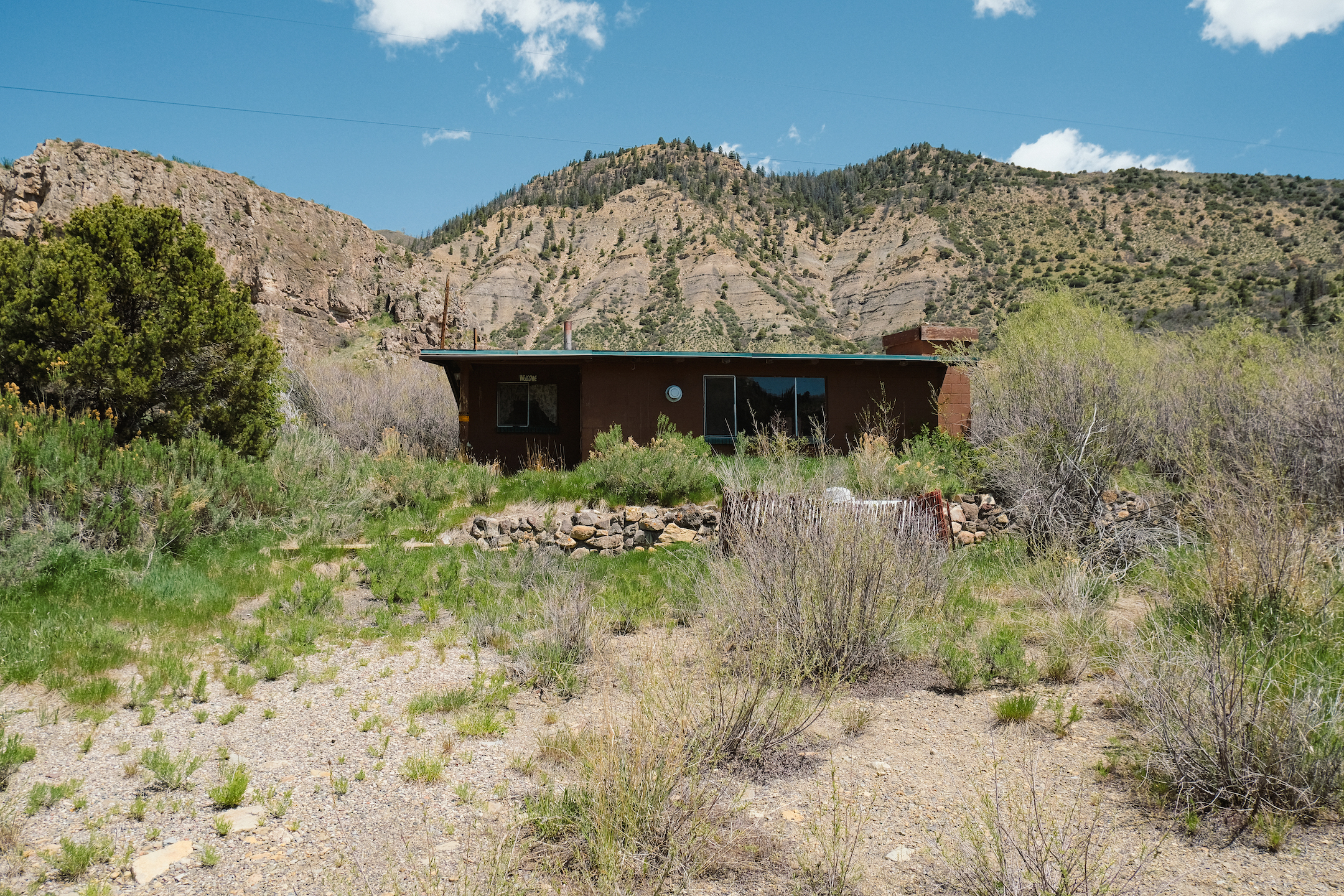
However, even with less than a year on the clock, Lehman was adamant: “Nothing is set in stone.” Even the designation of “state park” hasn’t even been fully decided on, he said.
“The term ‘state park’ has been a very hot topic — obviously, you saw the signs on the way up,” he said. So, USFS and CPW have considered designating it as a “conservancy area” instead. Still, he admits that merely changing the name might be a superficial solution.
It’s important to note that not all locals oppose the state park designation and development of Sweetwater. Some are adamantly in favor of it, as evidenced by the public comment page on the USFS site. The majority of comments, though, express sentiments of hesitance, resistance, and outright opposition.
Among those, the root issue that was central to every comment was overuse.
Sweetwater State Park: The State’s Plan
CPW’s objective is to keep Sweetwater’s daily visitation at or below 250 people. Both CPW and USFS said that number is based on historical use rates. If necessary, a timed entry system requiring reservations could be implemented on weekends or other busy times to ensure that it is not exceeded.
Lehman clarified that 250 a day is the ceiling use rate. Most days, the lake is expected to have far fewer visitors.
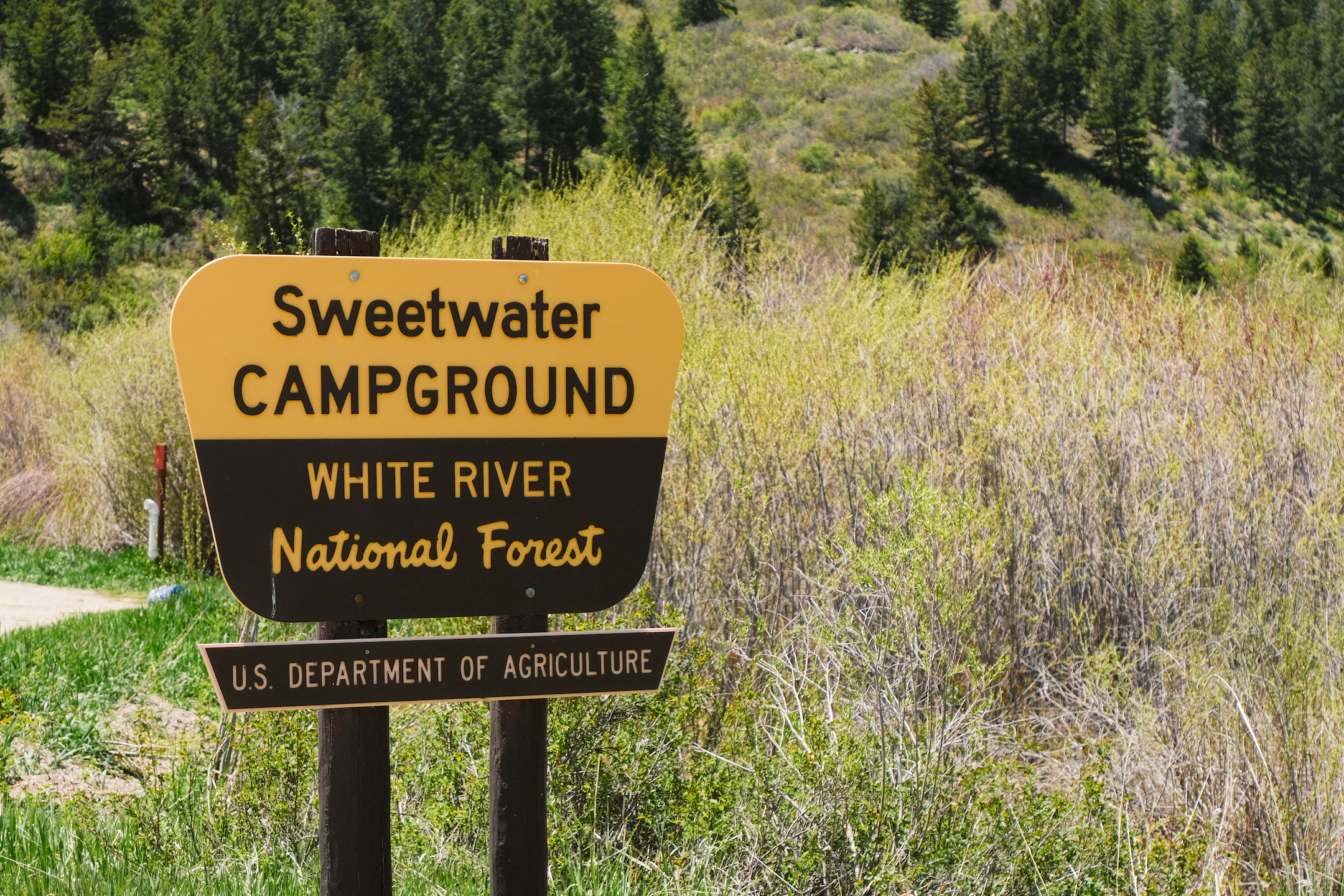
The old nine-site campground would be turned into a day-use area. It would have a parking lot with 30-40 spaces, toilets, and a picnic area. The new campground would have 15-20 sites, and would be installed in a pasture on the lake’s north side. An equestrian campground with four to seven new sites would be built in another pasture above that.
Historically, horses have been one of the biggest recreation attractions at Sweetwater. Hunters ride them in the fall to access the Flat Tops Wilderness area, and families take day tours around the lake’s network of trails. Brink, of AJ Brink Outfitters, has operated with a priority use outfitter and guide permit at Sweetwater Ranch for 39 years.
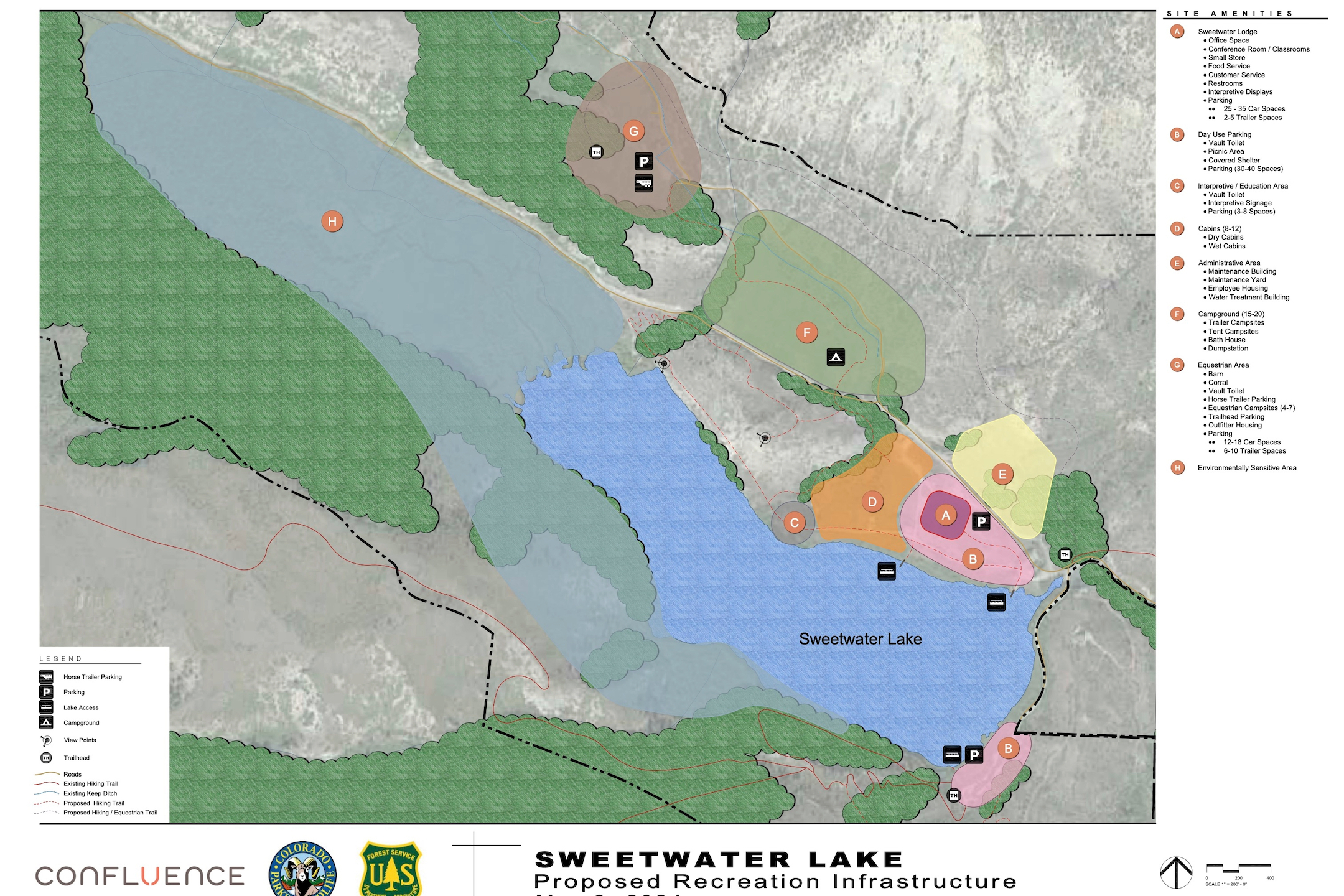
(Photo/USFS, CPW)
Lehman said that the state has an obligation to put the outfitter position up for bid so CPW can choose the most qualified business. The state can’t play favorites, he said; there needs to be competition, and all potential candidates deserve consideration.
“[AJ Brink] has been out here for 40 years, and we absolutely want to keep her up here,” Lehman said. “But nothing’s guaranteed.”
Brink is fighting to protect her livelihood. Her operation has been a mainstay of the Sweetwater community and she knows the lake’s surrounding area better than anyone. She said she knows other local outfitters would leap at the chance to put her out of business. It wouldn’t serve the state to let that happen, though.
“If it went that way, there would be some bad karma coming from somewhere,” she said.
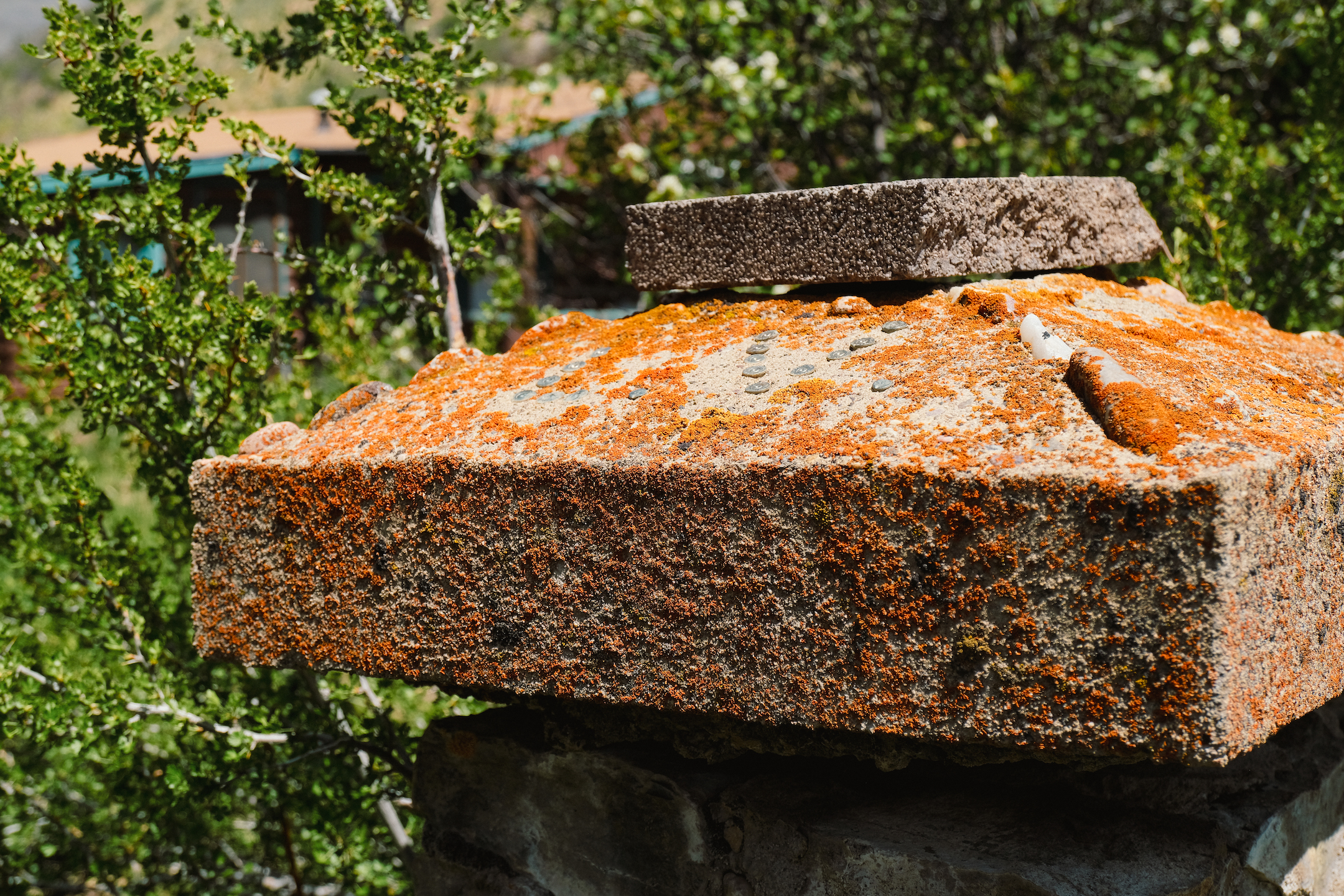
Many of the historic cabins on the property are historic, and AJ Brink used to rent them as homestays. Those will likely all be torn down. The one exception Lehman said might be the cabin that allegedly once belonged to the famous Chicago gangster, hit man, and outlaw Louis “Diamond Jack” Alterie (born Leland A. Varain). According to USFS documents, it may be restored for use as an educational interpretive site “if feasible.”
Any new buildings constructed at Sweetwater would be designed and aesthetically similar to those of the historic buildings already in the area.
Ecosystem Protection & Limited Recreation
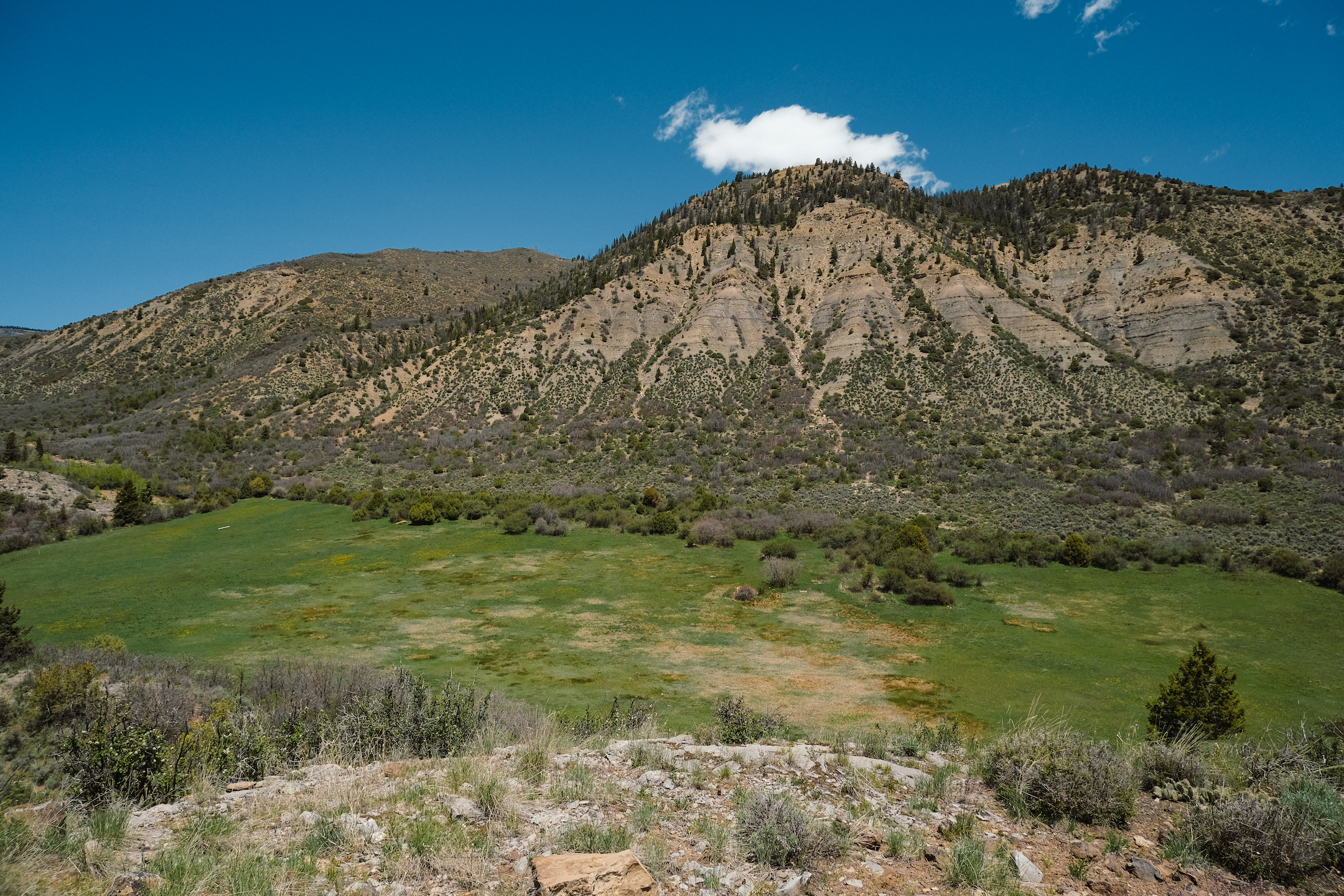
According to the Sweetwater Community Club, the Roaring Fork Audubon Society conducted a survey over 2 years and found 84 bird species present at Sweetwater; 11 of those are considered to be “species of conservation concern.” There are also sensitive riparian ecosystems on the far west shore of the lake.
To protect wildlife and habitats, most of Sweetwater Lake’s west side would be closed and off-limits to recreation. That includes the riparian areas and the cliffs occupied by nesting raptors. Recreation opportunities at Sweetwater would also be limited to hiking, boating, camping, and equestrian use. There would be no climbing, mountain biking, or ATV access at all.
Sweetwater State Park: A Sensitive Subject, Exciting Prospects
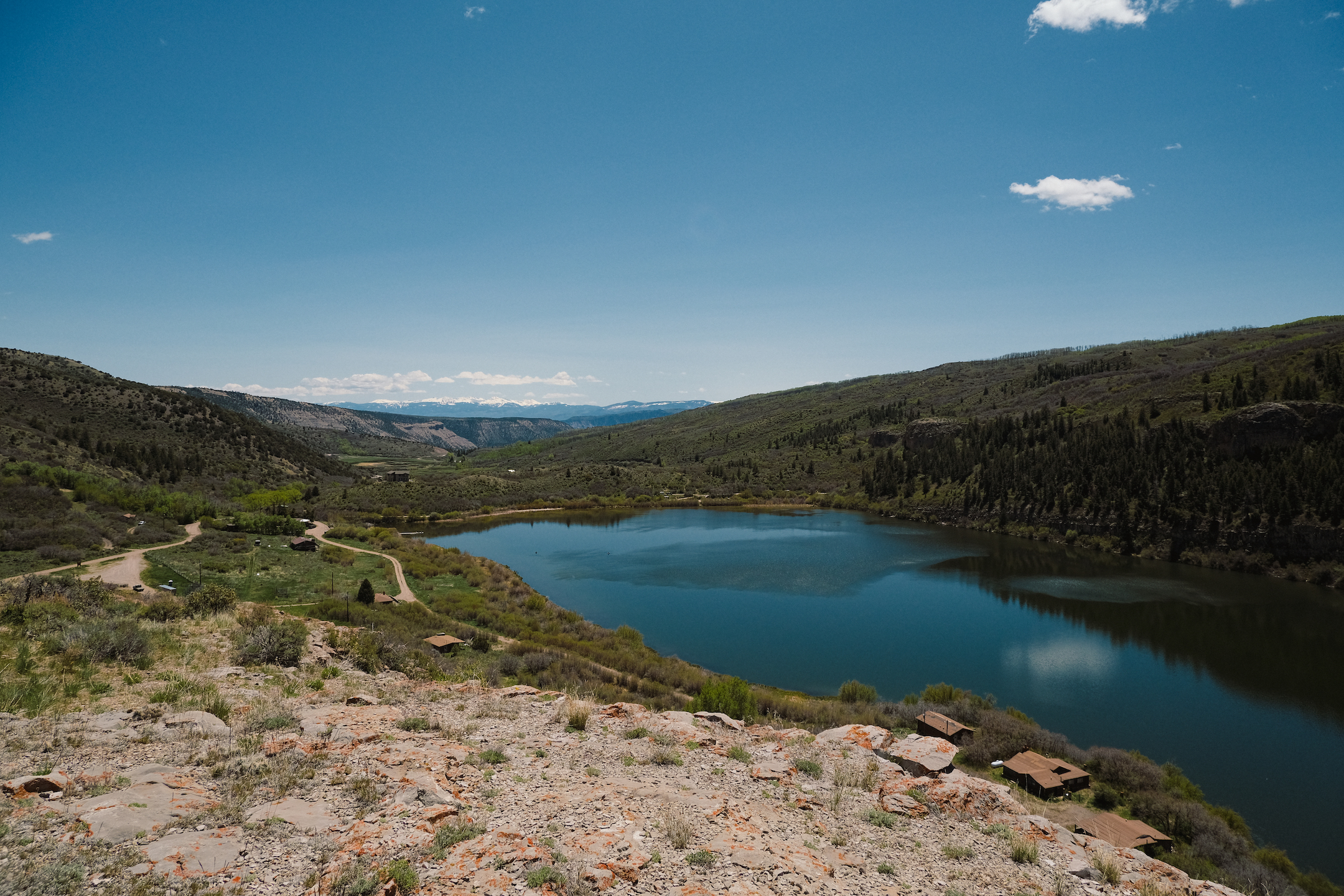
I miss the old Sweetwater — the restaurant with its simple home-cooked menu, delicious pies, and hundreds of hummingbirds zipping around the deck. I will miss the quiet campground, the primitive lake access points, and the sparse development. It felt hidden, like a local secret.
But the old Sweetwater is gone and has been for several years. The previous owner shut the restaurant down before they sold it. The docks haven’t been well maintained, the campgrounds haven’t been updated, and the historic buildings that people used to rent are dilapidated and falling apart.
Sweetwater Ranch and the lake were bound to change eventually, for better or for worse. Personally, I’m glad it isn’t going to be a water bottling plant or the next Yellowstone Club. Instead, it will be a state park, “conservancy area,” or whatever the state ends up calling it. We’ll all still be able to access that spectacular area to camp, hike, fish, or ride horses. The story of Sweetwater can continue.
However, at least for me, it’s also easy to sympathize with the community’s frustration. If you’ve ever visited, you know how rural and off-the-map Sweetwater is. The people who live there for those reasons are scared to see it change. They’re sad to lose this private, peaceful retreat. They don’t want to be en route to the next big state attraction.
More than anything, they want to preserve their community and the natural resources that make it so special.
One public comment from Mark Henrichs summed up the local attitude toward Sweetwater’s future succinctly: “We do want improvements to the area, but we don’t want overuse.”
At this point, the best way to achieve that is collaboration between the state and any locals who care. Submit your comment on the USFS Sweetwater Lake Recreation Management and Development Project webpage. The more CPW, USFS, and the people can work together to plan Sweetwater’s fate, the more future generations will benefit from our preserving and protecting that place.
